Background to the project
Art in Healthcare worked with Volunteer Midlothian to provide a programme of art workshops for people affected by dementia from October 2017 to March 2018. Two groups took part – one in Penicuik and one in Dalkeith. The Penicuik group worked with professional artist Olivia Irvine who led a programme of art workshops over a period of 16 weeks. The Dalkeith art workshops were led by artist Heather Lucchesi and individuals from both groups contributed works of art for an exhibition held at Penicuik Library in March 2018. The project was funded by Corra Foundation and Foundation Scotland with additional in-kind support from Volunteer Midlothian. The Penicuik dementia friendly group includes eleven participants and two volunteers. They meet weekly at Penicuik Library and have established a great relationship with artist Olivia Irvine. With support from our sponsor, BTO Solicitors LLP, the group were able to visit the Art in Healthcare exhibition where Olivia led the dementia-friendly tour on Monday 4 June.
Art in Healthcare exhibition
Art in Healthcare has a collection of art which is loaned into hospitals and other healthcare settings for the benefit of patients, visitors and staff. Each year the charity presents a fundraising exhibition featuring new work by artists who feature in the collection. This includes some of the biggest names in contemporary Scottish art alongside emerging artists. This year the exhibition was sponsored by BTO Solicitors LLP and took place at the Arusha Gallery on Dundas Street in Edinburgh 1-4 June 2018.
The dementia friendly tour
The art workshop project was designed to help individuals and their carers to become creative with a view to alleviating stress and also addressing stigma. There is a danger that dementia is understood in terms of decline and loss, but our experience of working with the two groups in Midlothian demonstrated how art activity can focus very much on wellbeing and celebrating success. Building on the success of stimulating the creativity of the people living with dementia and their carers, the dementia friendly tour provided the opportunity to further stimulate creativity through engagement with works of art at the Art in Healthcare exhibition.
The participants
Most people with a dementia diagnosis will experience memory difficulties and problems with thinking. Their needs will change as their disease progresses and their loved ones and carers will be affected by this change too. There may be a sense of anxiety due to the loss of independence and autonomy which can impact negatively on self-esteem and confidence and change social roles and relationships. Everyday skills can be affected, such as cooking and driving, and the opportunity to develop some new skills through art can have a really positive impact on self-esteem. Despite dementia generating a sense of loss, the person will still retain some abilities and will steel feel an emotional connection to people and their environment. The art workshops introduced used a wide variety of art materials to develop creativity. The activity focused on what was retained rather than what was lost and as the workshops progressed it was possible to provide a sense of something new and different – acquiring an interest and a skill rather than losing one. The participants were extremely positive about their experience using a wide range of art materials and learning together as a group as well as developing their own highly personal approach to being creative. This experience may well have informed the responses to the art on display at the Art in Healthcare exhibition where everyone was extremely engaged with the tour.
Responses to the art on display
Most responses were gathered through a group discussion with everyone looking at the same work of art at the same time.
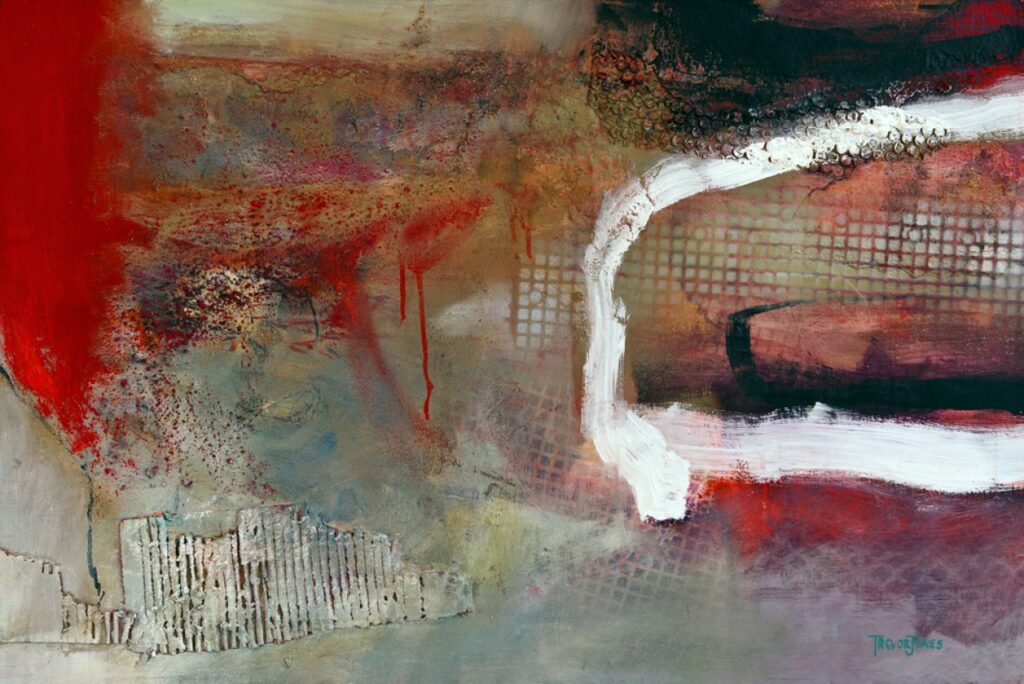
Trevor Jones
Mixed media on board
Participants were intrigued by the layers of paint and other media and creating layers and textures. The title of painting was interpreted by some as a reference to field sports and by others as a box of matches. Some of the comments and ideas were linked to interpreting the title but most of the engagement was focused on the particular items used to create a collage effect including corrugated card, netting and thick paint.
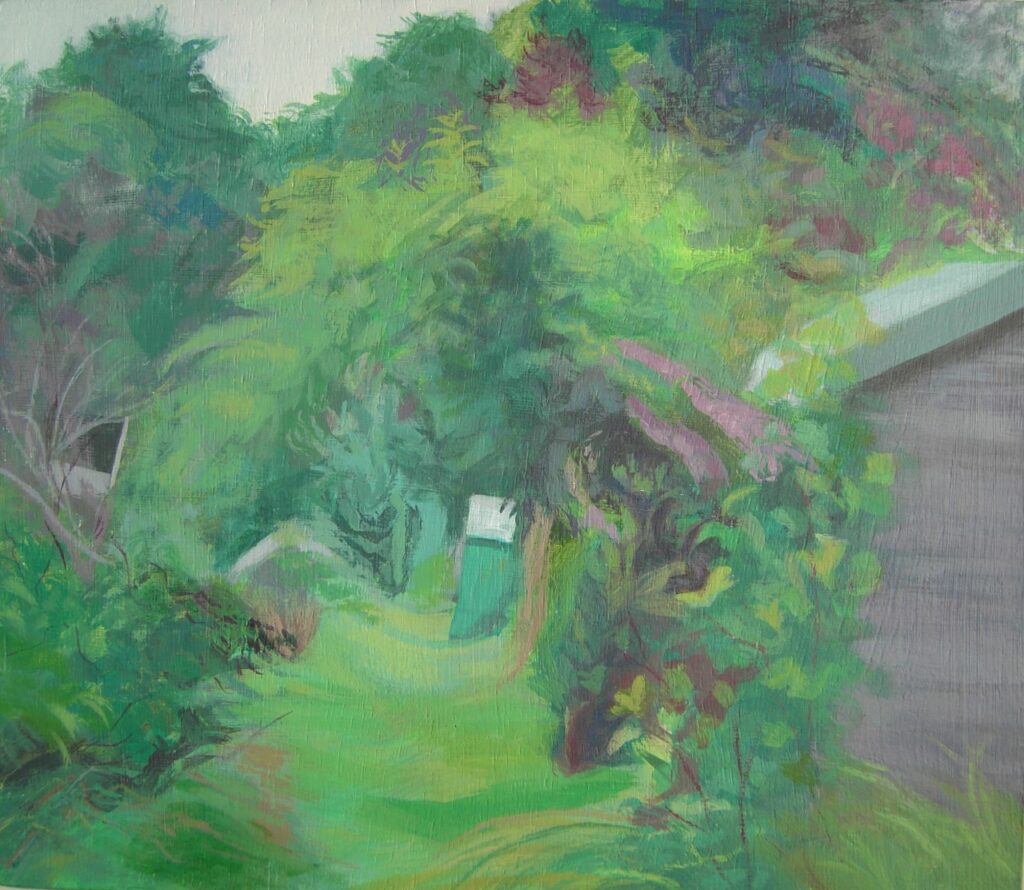
Carolyn Burchell
Acrylic on board
The composition of this painting caused more than one participant to gesture with their hands to create the swirling shapes they immediately identified. This sense of movement captured the imagination of one participant who voiced this view as ‘going round and round’.
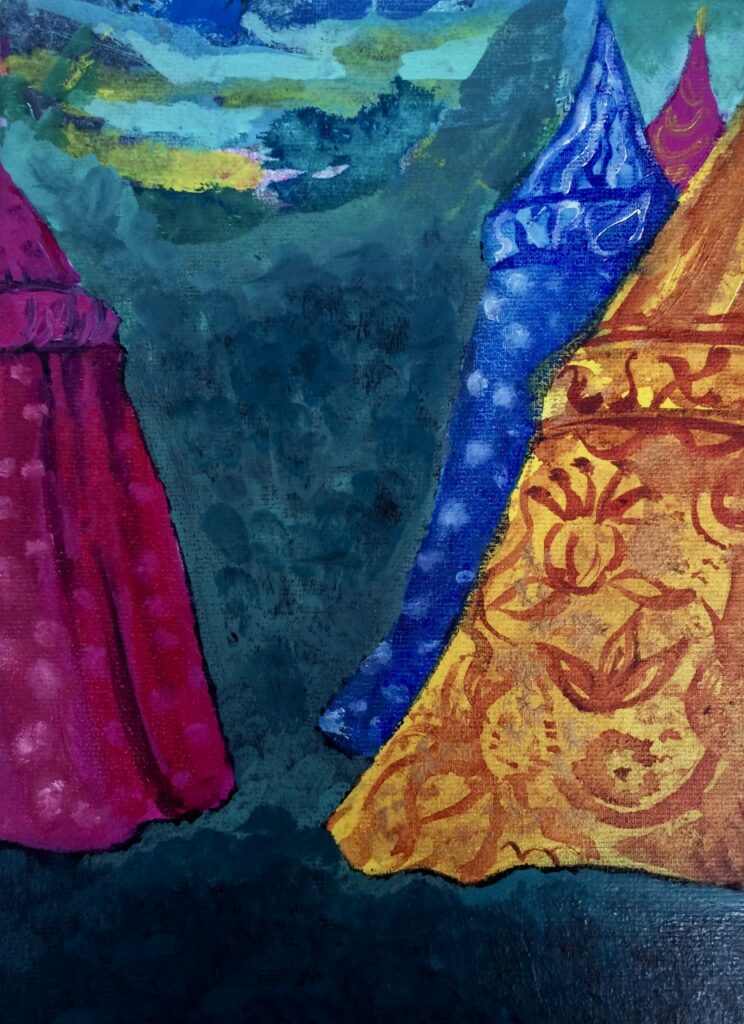
Anne Forte
Oil on linen
This painting prompted imaginative discussion about the tents being exotic, fascinating and colourful. One participant focused more on the composition, following the lines with his finger: ‘it goes down, along and up’. As with the response to the Midmar Allotments painting, the participants seemed to be entering the painting, moving and following. ‘You can go in there, through, up there, over there’
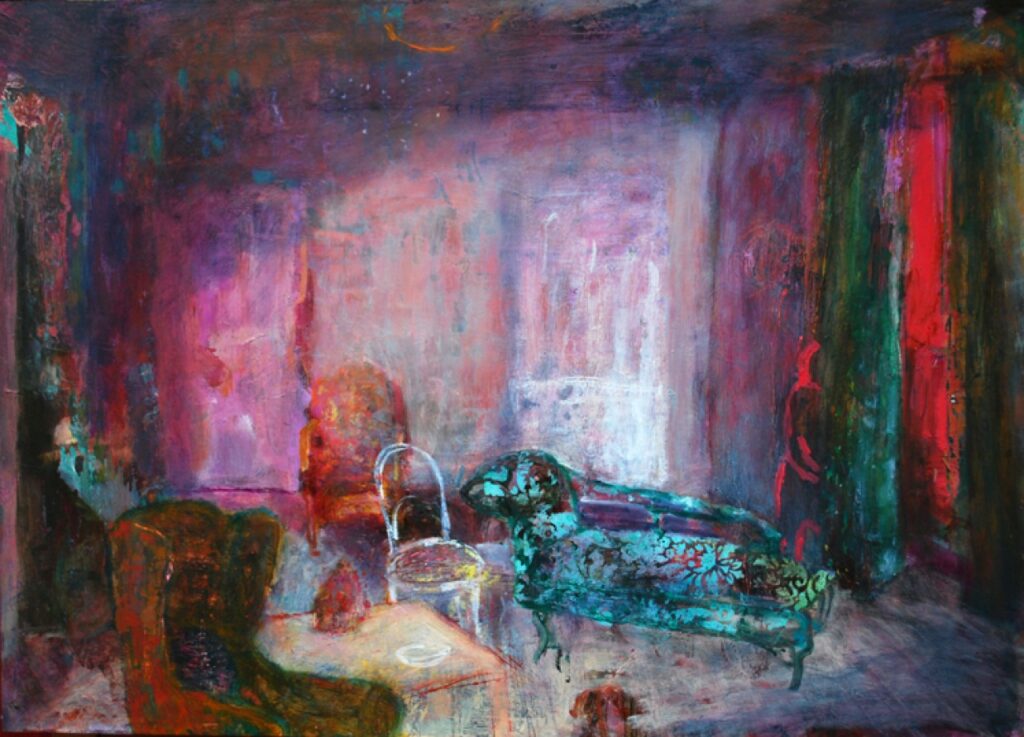
Olivia Irvine
Oil on board
Participants asked questions about this painting and a discussion developed around the chaise longue. Focusing on what was depicted caused the discussion to focus on reminiscences of doctor and dentist waiting rooms.
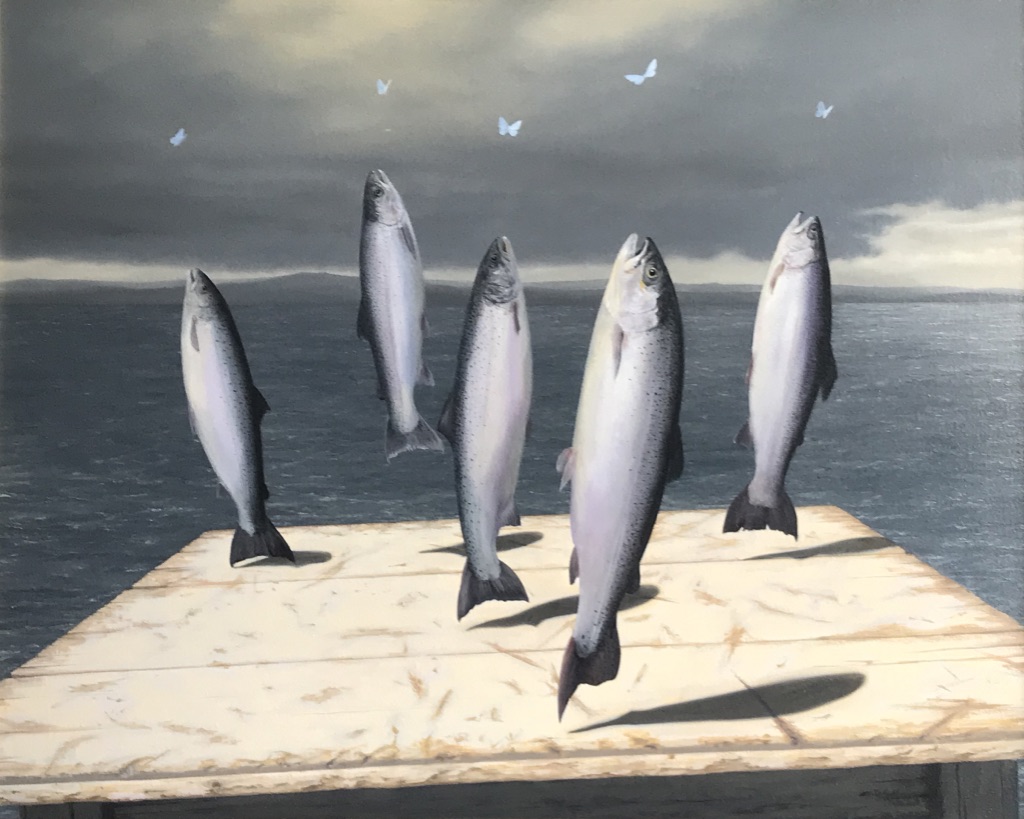
Gordon Mitchell
Oil on canvas
One participant had a lucid moment in response to this painting as he clearly described his experience of fishing in the past. This was a very positive experience for him and his carer.
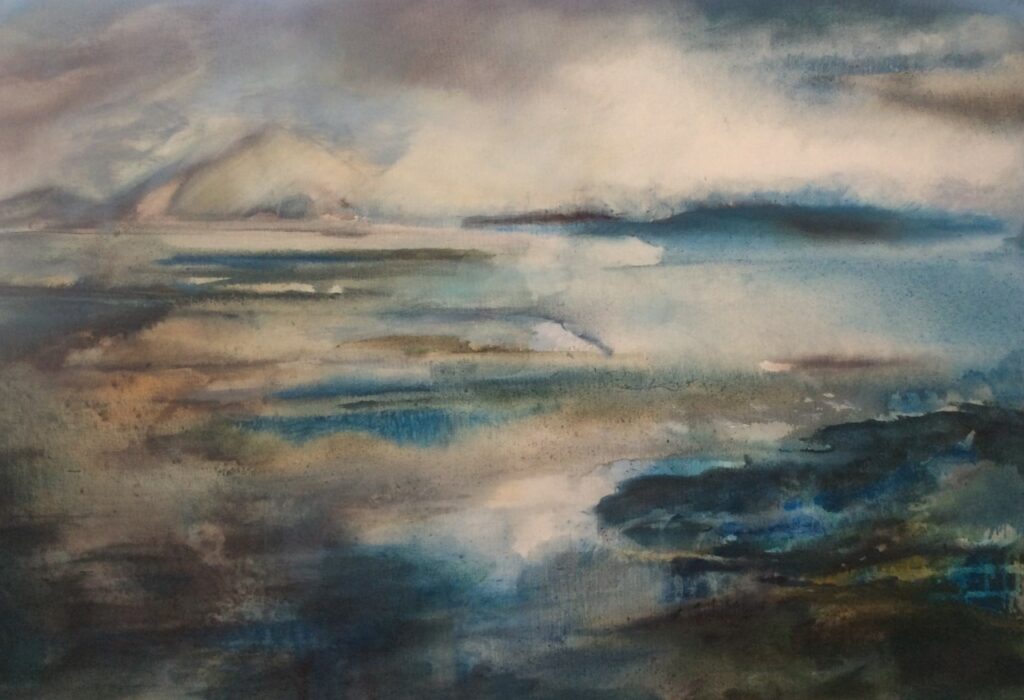
Sarah Knox
Oil on canvas
Discussion around this painting evoked memories of the Highlands as participants reflected on how the work captured the mood of the landscape.
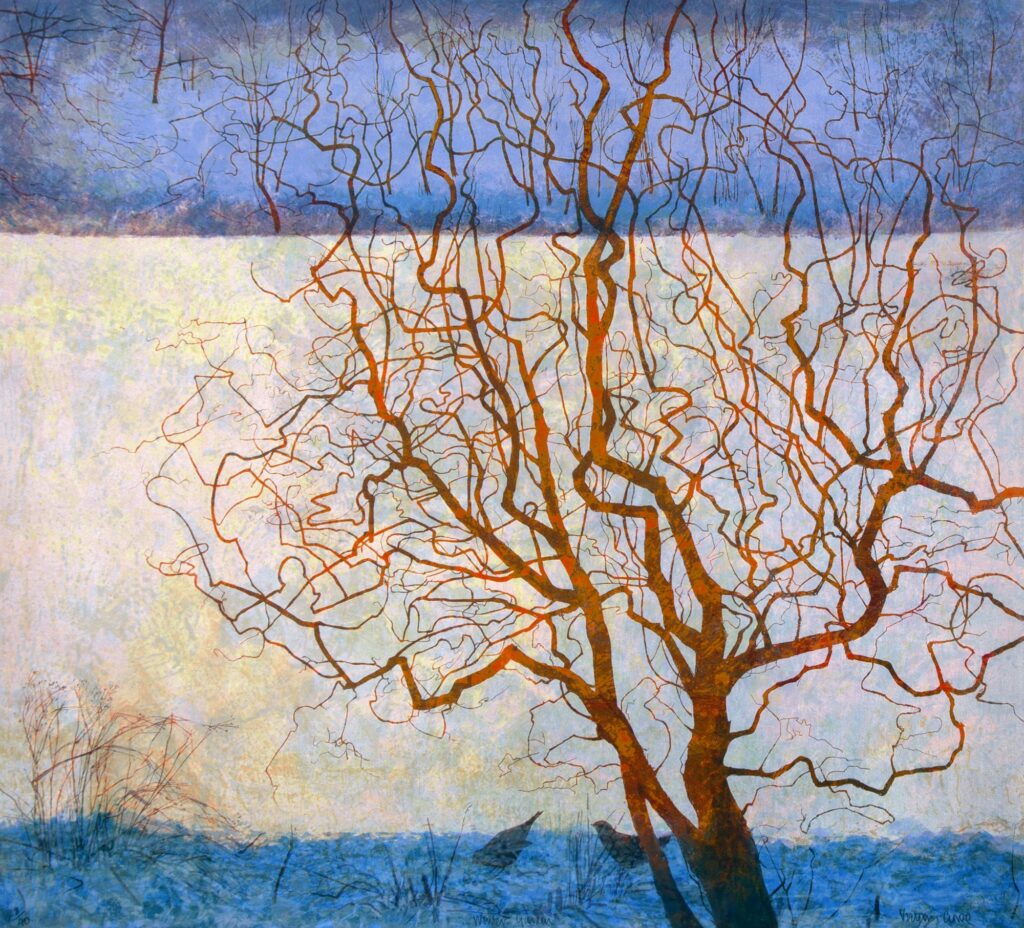
Victoria Crowe
Screenprint
This print was positioned on a wall that allowed the viewer plenty of space to stand back and view it. However, one of the participants was far more interested in concentrating on the left hand corner of the print where she looked closely at a small area depicting vegetation. She focused with great interest on the thin lines that made the marks of the grass. Encouraged through discussion with Olivia Irvine, she made a connection with this and her own experience of mark-making at the art workshops.
Next steps
With the support of our sponsor BTO Solicitors LLP, we are now working with artist Heather Lucchesi to publish a dementia resource pack which will use works of art from our collection to inspire the creativity of people living with dementia. Further details about the pack will be available soon.
Art in Healthcare
June 2018
25 June 2018 by
Art in Healthcare
